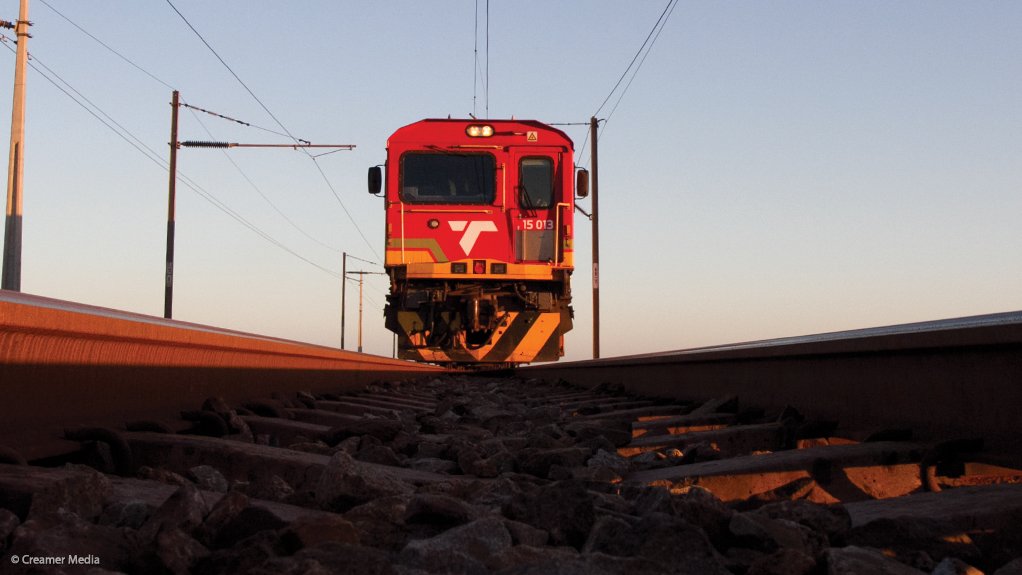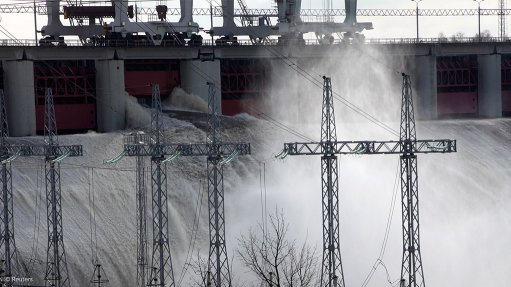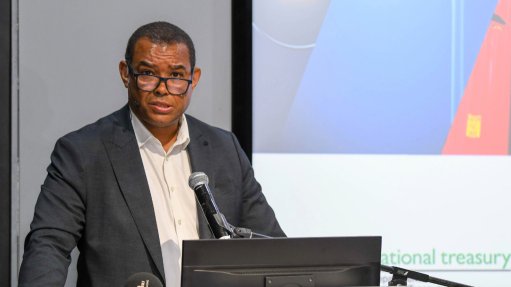Transnet signals intent to support domestic manufacture of rail despite global tender
State-owned freight logistics group Transnet has signalled its intention to support the localisation of rail manufacture, but is simultaneously proceeding with a global tender for the supply of 60 kg a metre of head hardened rail, which it describes as an interim solution for meeting its continuous replacement requirements.
The group, which operates and maintains more than 30 000 km of track infrastructure, issued a request for information (RFI) in July relating to the local manufacture and supply of rail and reported on Monday that it would begin assessing responses, received on August 4, by the end of the month.
The objective of the RFI was to assess the domestic market’s capability and capacity to manufacture rail in line with South Africa’s standard specification and lengths, as well as to determine the timelines and investments required to meet Transnet’s projected yearly demand of about 77 000 t.
The preferred specification is 60 kg a metre of head hardened rail, as Transnet says such rail enables interoperability of rolling stock and ensures that maintenance is optimised.
Transnet is undertaking the rail localisation drive in collaboration with the Department of Public Enterprises and the Department of Trade, Industry and Competition (DTIC), which has identified localisation as one of its key industrialisation priorities.
In fact, the DTIC has already designated rail for procurement from local suppliers, but Transnet tells Engineering News that there is currently no local manufacturer. “Hence, Transnet has issued an RFI to assess interest and capacity for local manufacturing of rails.”
In the interim, it would have to secure an exemption from the DTIC to source rail from abroad.
“Transnet has been sourcing rails from local suppliers who have been importing it from the original equipment manufacturers, as there is no local rails manufacturing facility.”
Trade, Industry and Competition Minister Ebrahim Patel said in his July Budget Vote that “strategic localisation” should be a major domestic policy goal, along with the greater use of locally-made inputs of steel.
He also announced that a steel industry masterplan was being finalised and that he was engaging with “talented persons inside and outside the public sector” to assess ways of further leveraging local procurement to support industrialisation.
In a separate address to African Union Ministers in late July, Patel argued that the continent’s economic reconstruction efforts arising as a result of the Covid-19 pandemic should embrace the ‘Made in Africa’ and ‘Proudly Produced in Africa’ themes.
Transnet said the localisation of rail manufacturing could have various benefits, including job creation, local economic development, as well as enterprise and supplier development.
Nevertheless, Transnet issued a global request for proposals (RFP) on July 13 for a two-year rail supply contract, arguing that the two-year period was the minimum lead-time required for a brownfield rail manufacturing investment.
“This will ensure security of supply of rails, and enable Transnet to meet its maintenance schedule and ensure that the rail system is kept safe and reliable,” the company said.
The volume being sought through the (RFP) is 2 019 km of rail, which will be deployed nationally.
“The high utilisation of the core network requires a strict maintenance regime that translates roughly to 77 000 t of steel per year,” Transnet told Engineering News, but refused to disclose its yearly rail procurement budget, which it described as confidential.
The closing date for the global RFP is August 26.
“Transnet is still evaluating the rails RFI and any future RFPs for the supply of rails will be issued through the National Treasury tender portal, depending on Transnet business requirements.”
Article Enquiry
Email Article
Save Article
Feedback
To advertise email advertising@creamermedia.co.za or click here
Comments
Press Office
Announcements
What's On
Subscribe to improve your user experience...
Option 1 (equivalent of R125 a month):
Receive a weekly copy of Creamer Media's Engineering News & Mining Weekly magazine
(print copy for those in South Africa and e-magazine for those outside of South Africa)
Receive daily email newsletters
Access to full search results
Access archive of magazine back copies
Access to Projects in Progress
Access to ONE Research Report of your choice in PDF format
Option 2 (equivalent of R375 a month):
All benefits from Option 1
PLUS
Access to Creamer Media's Research Channel Africa for ALL Research Reports, in PDF format, on various industrial and mining sectors
including Electricity; Water; Energy Transition; Hydrogen; Roads, Rail and Ports; Coal; Gold; Platinum; Battery Metals; etc.
Already a subscriber?
Forgotten your password?
Receive weekly copy of Creamer Media's Engineering News & Mining Weekly magazine (print copy for those in South Africa and e-magazine for those outside of South Africa)
➕
Recieve daily email newsletters
➕
Access to full search results
➕
Access archive of magazine back copies
➕
Access to Projects in Progress
➕
Access to ONE Research Report of your choice in PDF format
RESEARCH CHANNEL AFRICA
R4500 (equivalent of R375 a month)
SUBSCRIBEAll benefits from Option 1
➕
Access to Creamer Media's Research Channel Africa for ALL Research Reports on various industrial and mining sectors, in PDF format, including on:
Electricity
➕
Water
➕
Energy Transition
➕
Hydrogen
➕
Roads, Rail and Ports
➕
Coal
➕
Gold
➕
Platinum
➕
Battery Metals
➕
etc.
Receive all benefits from Option 1 or Option 2 delivered to numerous people at your company
➕
Multiple User names and Passwords for simultaneous log-ins
➕
Intranet integration access to all in your organisation





















